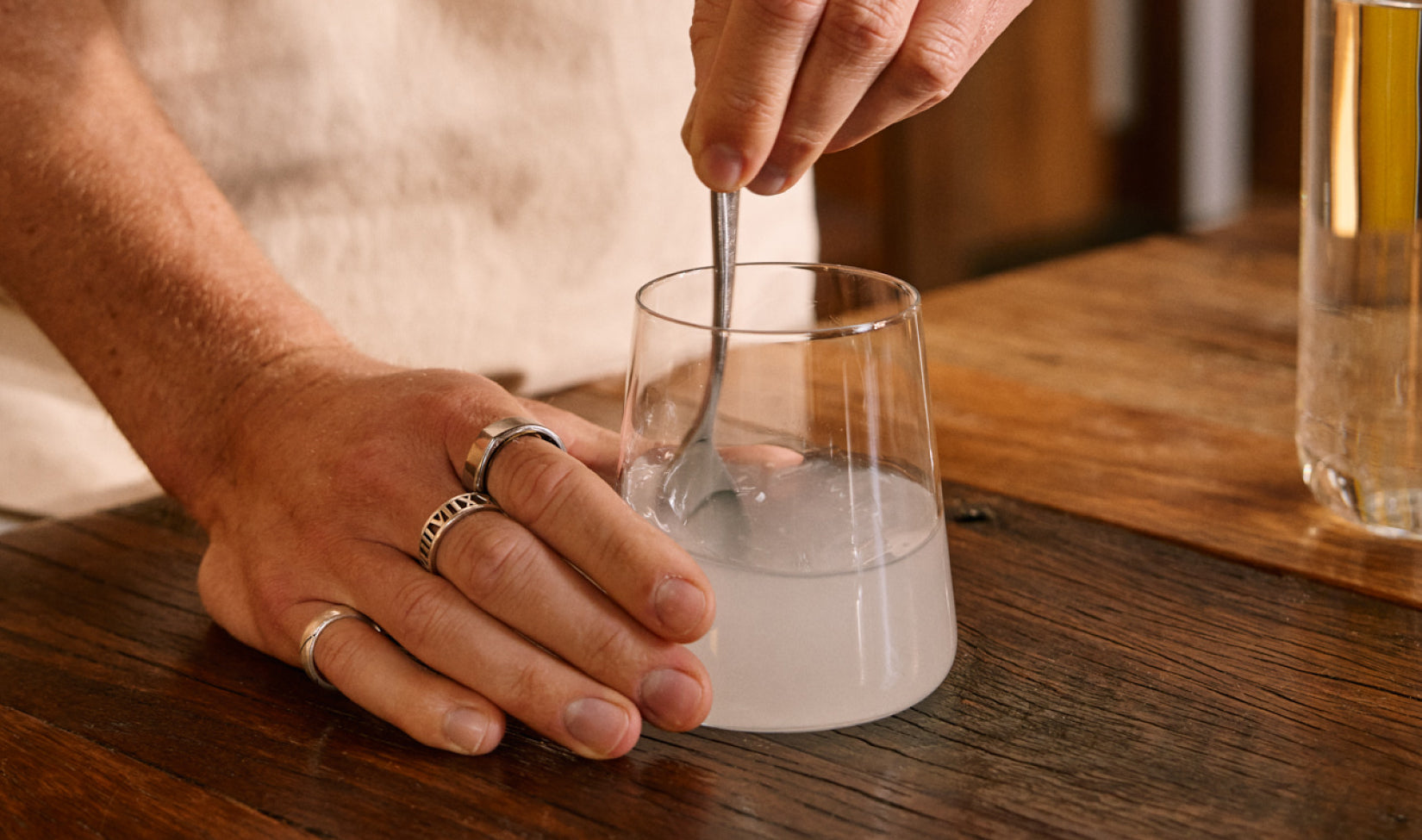Written by Defeat Diabetes, Australia's only clinically proven program to improve blood glucose, reduce blood glucose-lowering medications and help achieve a healthy weight. Visit DefeatDiabetes.com.au for more information.
When you think about managing type 2 diabetes, you probably picture glucose meters, low carb meals or medications and not a humble glass of water. But here's the deal: hydration matters, and it matters a lot.
If you’re living with type 2 diabetes (T2D), or supporting someone who is, here’s why upping your water game, and being smart about salts, can make a real difference to your health and energy levels.
People with T2D tend to lose more fluid than the average. High blood sugars pull water out of your body (known as osmotic diuresis), and you can end up mildly dehydrated without realising it. The signs? Think fatigue, foggy brain, dry mouth and "just not quite right" vibes.
But it’s not just about water. With that fluid, your body also loses important minerals like sodium, potassium, and magnesium, known as electrolytes. And when your electrolytes are out of whack, your energy, mood, blood pressure, and even your blood sugar control can take a hit.
Don’t fear the salt
If you’ve been told to avoid salt at all costs, here’s some good news: it’s more about balance than blanket bans. And if you're eating low carb or keto to manage your diabetes, you may actually need more sodium, not less.
Why? When insulin levels drop (which is a good thing in T2D), your kidneys start flushing out more sodium and water. That can leave you feeling dizzy, headachy, or just plain flat, what some call “keto flu”. Often, this can be fixed with something as simple as a pinch of salt in your water, a mug of broth or electrolytes!
Studies show people on low carb diets, which focus on whole foods and protein, often need to increase sodium intake to compensate for reducing processed foods, which are usually high in salt.
Dehydration can raise blood sugar, too
Yes, weirdly enough, when you're dehydrated, your body ramps up a hormone called vasopressin, which tells your liver to make more sugar. It also messes with insulin sensitivity, making it harder for your cells to respond to insulin.
So by staying hydrated, you’re not just doing your skin or kidneys a favour, you’re literally helping your body handle sugar better.
A French study found that people who drank as little as half a litre of water a day were less likely to develop high blood sugar over time. Prioritising at least 1.5-2L per day will keep you thriving.
Spice up your water game with an electrolytes
Let’s be honest: plain water gets boring. Many people living with type 2 diabetes struggle to drink enough, especially if they’ve cut out soft drinks or juice. Adding electrolytes to your water every day can help increase your intake with a bonus mineral boost.
Low insulin levels promote sodium excretion by the kidneys, leading to symptoms like fatigue and "keto flu." Replenishing sodium and fluids, particularly in the early stages of carbohydrate reduction, can improve energy, minimise keto-flu side effects and help you stay on the low carb track.
Hydration hacks for people with T2D
Aim for:
🚰 6–8 glasses (1.5–2L) of water a day, more if it’s hot or you’re exercising.
🧂Electrolyte-rich fluids: mineral water, broth, or water with a pinch of high-quality salt.
🪨Added electrolytes packed with essential minerals
Avoid:
🍬Sugar-sweetened drinks, including fruit juice, sugar free soft drinks and drinks with honey.
💧Overdoing plain water without electrolytes if you’re on a very low carb diet—it can make you feel worse.
🌊Assuming "just water" is enough, think salts plus hydration for the full effect.
Water isn’t just good for you, it’s essential to help your body manage blood sugar, balance hormones, and maintain energy levels. And when paired with the right amount of salt (especially on low carb), hydration becomes a true ally in your diabetes toolkit.
So next time you feel a bit off, foggy, or fatigued, don’t just reach for a snack, try reaching for electrolytes first.
